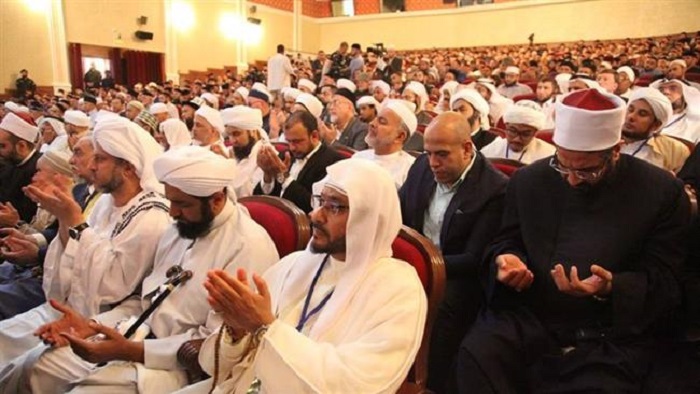Alwaght- A Sunni conference was held in Grozny, the capital of Chechnya Republic in Russia, without inviting the Saudi muftis, signaling a great deal of Russian officials' concerns about possible influences of the Wahhabi and Salafist groups on the Muslims of the country.
In fact, the Russian authorities in past few years have shown a rising interest to confront formation of radical movements within the Russian borders. Therefore, one of the key points the Russian government has set on its agenda is to enhance the awareness of Muslims of the country.
Currently, Russia has a Muslim population of 20 million. Such a large number of Muslims in Russia caused some concerns for the government over effects of the extremist movements. The Soviet Union governing system ruled the country for many years and it followed the policy of separation of religion from the politics. So, the level of religious awareness of the Russian citizens became very low. In fact, this present religious awareness has been injected into the Russian Muslim community after the Salafist and Takfirist groups penetrated Russian borders following collapse of the Soviet Union.
The Arab countries, majorly Saudi Arabia, Qatar, and the UAE, have made huge investments on the Islamic movements inside the Russian territories. They built many mosques and arranged cultural and educational activities in Muslim-inhabited regions of Russia. The Arab countries did other activities to promote their agenda among the Russian Muslims including sending preachers, printing and distributing religious books that proselytized Wahhabism and also inviting Muslim students for studying in religious education centers in the Arab world.
But in recent years particularly after extremism and terrorism saw a rise in West Asia region, the Russians looked dubiously at all of these Arab countries' links to the Muslims of Russia. They have gone to great lengths to cleanse the Russian community of the Salafist and Takfirist Islam. These versions of Islam have found chance of boosting in areas of Russia that are suffering from ethnic separatism. This growth of radicalism can even fuel separatist inclinations in the Muslim regions of Russia. So, the Russians are looking into the case from a national security dimension. By holding such conferences as the recent Sunni conference in Chechnya, Moscow can take steps against expansion of Salafist and Takfirist ideologies. Declining to invite muftis from such countries as Saudi Arabia to the Sunni religious event indicates the Russian worries about possible impacts of the Saudi-sponsored Wahhabi and Salafist movements on the Muslims of the country.
Since past years, the Russians believed that there was direct link between increased waves of sectarian radicalism and ethnic secessionism in Northern Caucasus republics with the Saudi policies. The direct connection of the Russian extremist groups with the Salafists and Wahhabis in Saudi Arabia and other Arab states poses a security challenge for Russia.
The Russians have their own serious security concerns at home and also in their foreign relations want to as much as possible block any influence of countries like Saudi Arabia on the Muslim community of the country. At the same time that Moscow finds influence of the kingdom and Takfirist and Wahhabi groups in the Muslim regions of Russia as running counter to its national security, it tries to boost relations with Riyadh and other Arab states. In fact, conflict of interests of Russia and Saudi Arabia and also full conflict of security of the two countries do not lead to increased rifts between the two sides. For example, in the Syrian crisis the interests of Moscow and Riyadh are on a collision course, however, when it comes to the crisis in Yemen, the Russians have their own interest-based considerations and so only address humanitarian aspect of Saudi aggression against Yemen, and do their best to steer clear of direct confrontation with the Saudis. Furthermore, despite all of the challenges in its ties with Saudi Arabia, Russia does not want to take Tehran’s side in the Saudi-Iranian rift. Actually, Moscow does not want to fan Sunni-Shiite tensions. Because the Sunnis account for a majority of the Muslims of Russia and due to Saudi Arabian sway there escalation with Riyadh can push the kingdom to use its proxies inside Russia. Russia seeks avoiding strained relations with Saudi Arabia, but Riyadh’s influence in the Russian Muslim communities remains presenting a security challenge and a red line for the Russians.



























